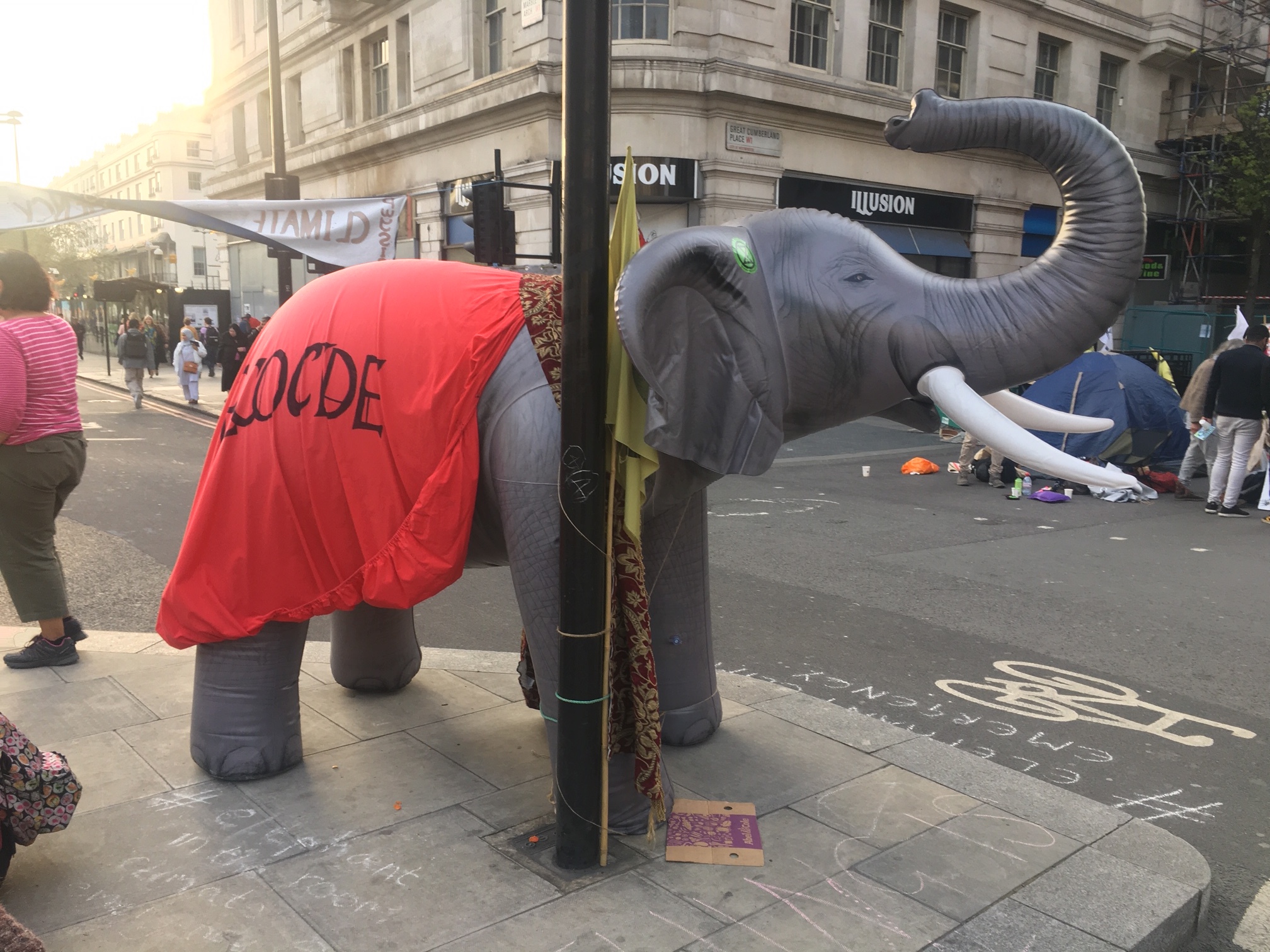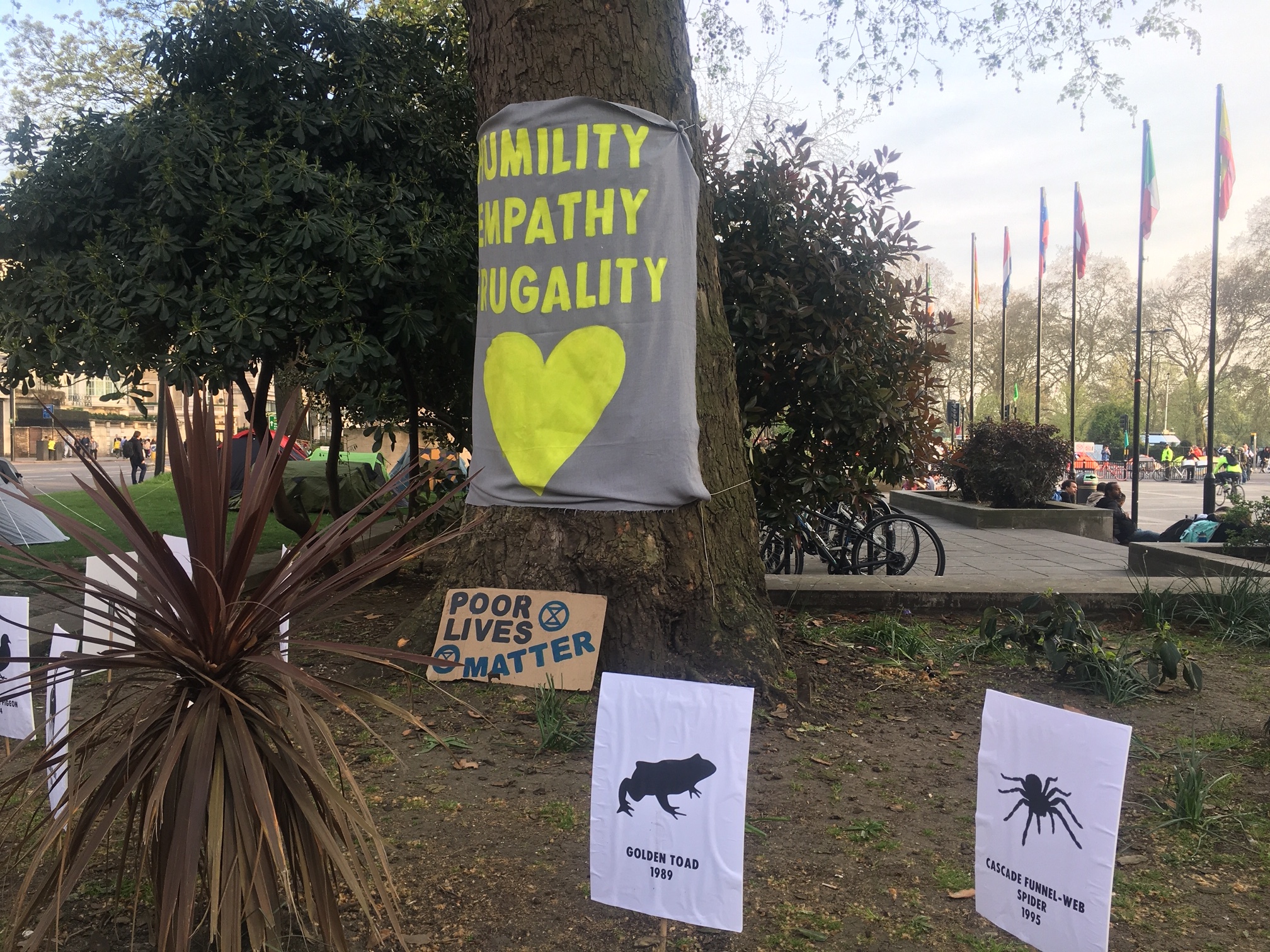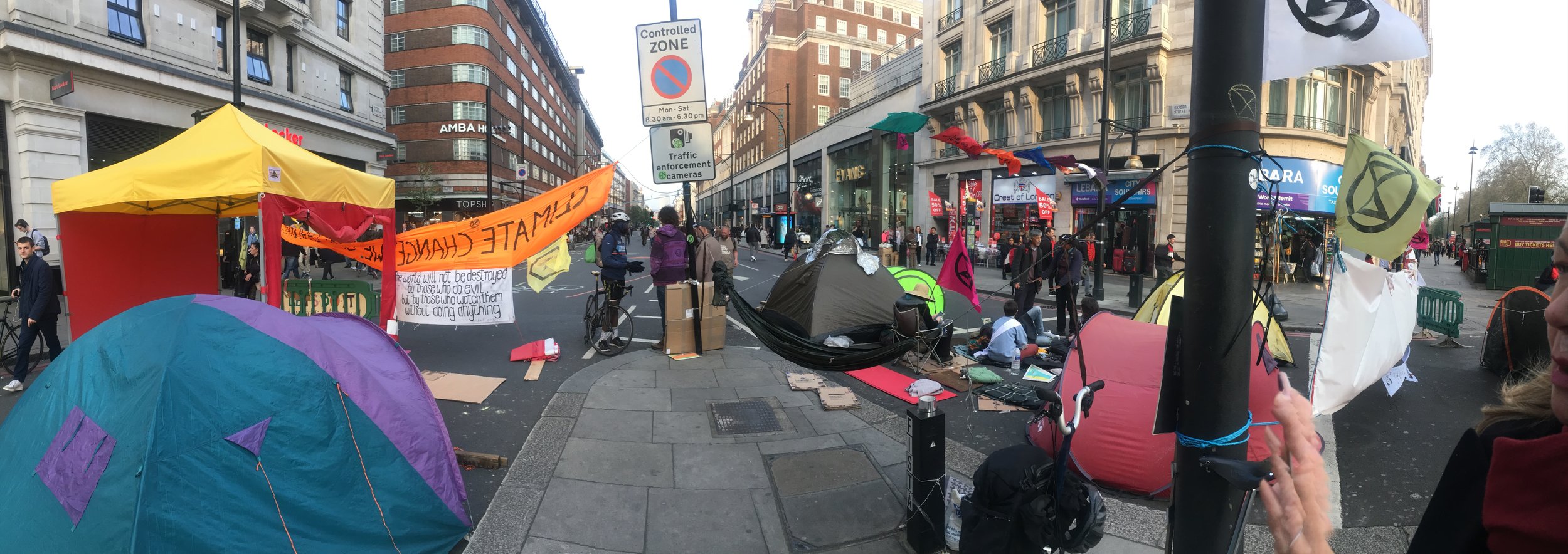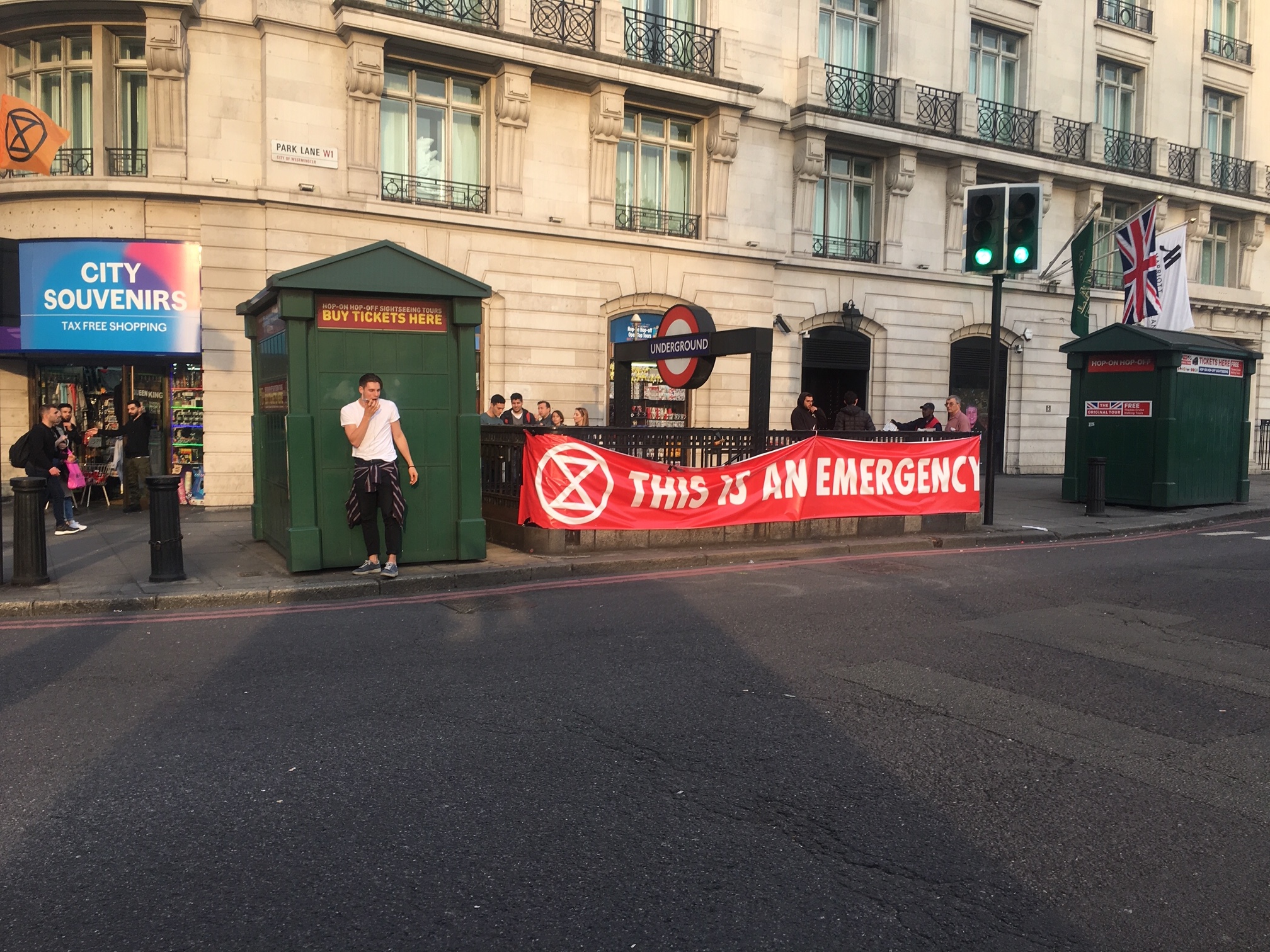How activists (school strikers and XR'ers) have shifted the policies of top-down politicians and officials
Shots from Marble Arch and Waterloo XR encampments, London
It’s been a good week for activism - particularly around climate disruption. And its ability, by making a focused spectacle of itself, of shifting the “policy window” in a planet-friendly direction. We’ll map them as they came to us, tweet by tweet.
Extinction Rebellion’s fortnight of action has been dominating the headlines on TV, radio and press in the UK. Their strategy of occupying and encamping at crucial points in city centres across the world, predominantly London, is having an electrifying effect - not least on senior politicians, officials and executives.
For example, see this tweets from the Labour shadow chancellor John MacDonnell, himself retweeting a statement by the Governor of the Bank of England, Mark Carney, who told fellow bankers they “couldn’t ignore climate change” (backed up by this report).
It’s quite a spectacle - neutral central banker according with socialist politician, both evidently in response to the wave of school strikes and Extinction Rebellion events.
Another sign of how the rolling waves of public protest, colorfully and peacefully pursued, is having its effect on the top level of politics, can be seen in the announcement this week by the Scottish Government’s First Minister, Nicola Sturgeon, that her administration is planning a “Scottish Green Deal”.
Her announcement came at a conference of Scotland’s trades unions, and as you’ll see from the link to the left (produced by the Scottish news site Common Space) there’s been an instant contextualising by a vocal group of activists and interest groups.
But it’s hard to imagine that this hasn’t been a response at least to the wider context of green protests, although possibly particularly Alexandria Ocasio-Cortez’s advocacy in the US. The SNP has pressure on its green credentials, as it has historically looked to expand oil production in the North Sea as part of its ambitions for nation-state independence.
However, as the economics commentator (and part architect of the original Green New Deal) Richard Murphy has commented, the SNP may need a better economic model to serve that ideal - which doesn’t include oil revenues.







